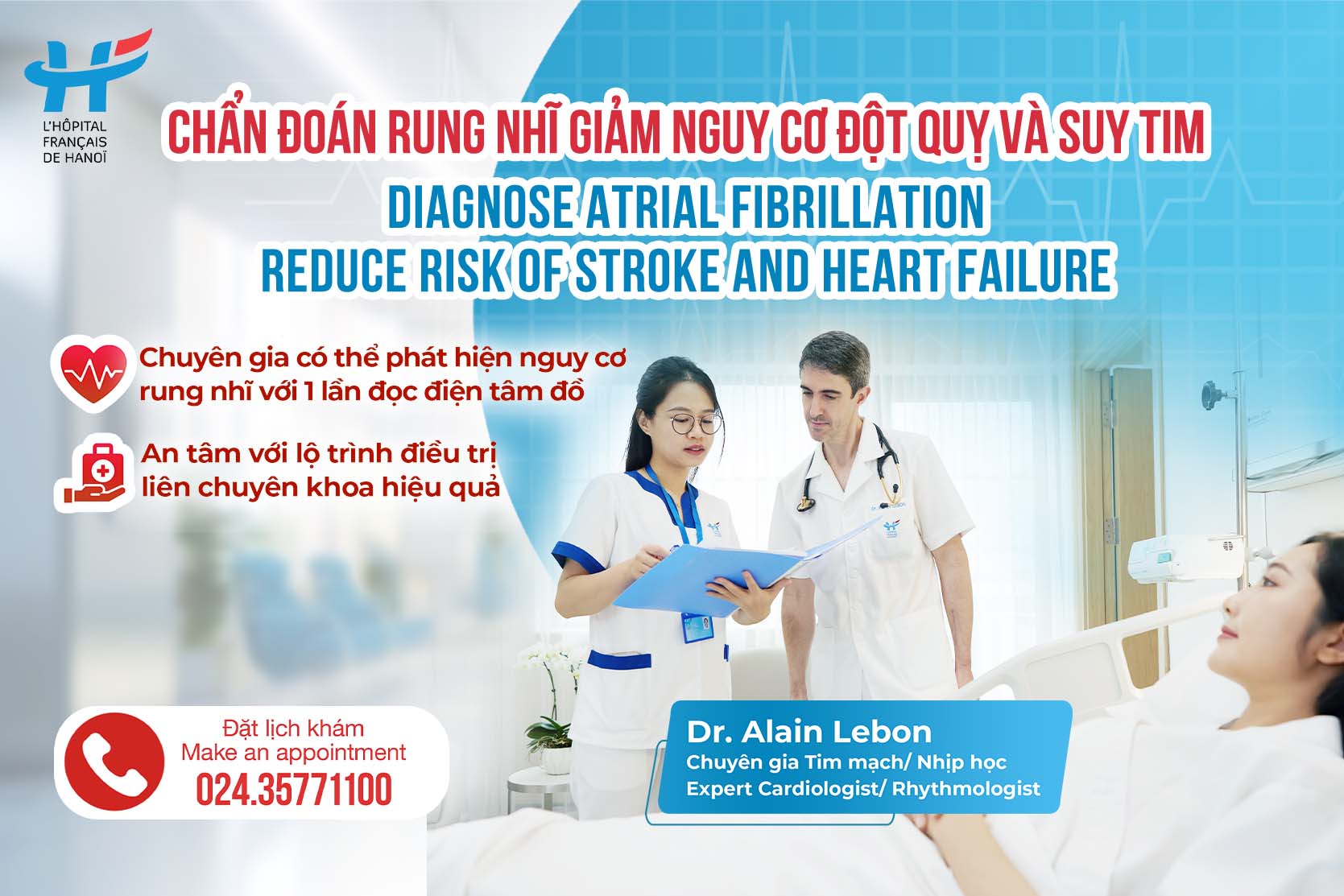News - Wed, 05/15/2024 - 16:06
Atrial fibrillation and the risk of stroke and heart failure
Last update 09/27/2024 - 17:58
Atrial fibrillation can increase the risk of stroke by up to five times, triple the chance of heart failure, and even cause early death.
It also causes the muscles in the atria to contract rapidly and irregularly, leading to an inefficient and irregular contraction of the entire atrium, also known as arrhythmia (irregular heartbeat).
Atrial fibrillation can lead to several complications:
- Blood flow through the atria becomes turbulent, leading to the formation of blood clots. Over time, these clots can enlarge and travel to various sites, causing strokes, or arterial embolism.
- Continuous stimulation from the atrial muscles can speed up the heart rate, leading to heart failure
- Over time, changes in the atrial muscles can lead to more severe rhythm disorders.
- Atrial fibrillation and its complications are responsible for three-fold greater overall risk of early death
Some people have no symptoms at all, while others have a variety of symptoms. Mild symptoms can include:
- Unpleasant palpitations or irregularity of the heartbeat
- Mild chest discomfort (sensation of tightness) or pain
- A sense of the heart racing
- Lightheadedness
- Mild shortness of breath and fatigue, especially with exercise.
Some people have severe symptoms, such as:
- Difficulty breathing
- Difficulty breathing with exercise or exertion
- Fainting, or near fainting, due to a reduction in blood flow to the brain
- Chest pain
- Severe fatigue
According to Dr. Alain Lebon, a French expert with over 15 years of experience in treating arrhythmias at Hanoi French Hospital: "With symptoms like these, patients are prone to confusion with symptoms of other diseases. Atrial fibrillation can be diagnosed early through REGULAR HEALTH CHECK-UPS."
At HFH, with our state-of-the-art facilities and advanced equipment, experts can detect risk of atrial fibrillation from one ECG reading.
This will show the atrial depolarization wave, called the P wave. Patients with atrial fibrillation will lose the P wave and instead have small, erratic waves between the ventricular beats, which can be very fast.
Patients identified with the risk of atrial fibrillation are provided with a treatment plan involving interdisciplinary coordination for optimal results.
For more information or to schedule an appointment with Dr. Alain Lebon or other specialists at HFH, please contact our hotline at 0243 577 1100, inbox the "Hanoi French Hospital" Facebook fan page, or message the Zalo official account at zalo.me/2008009049335817955.




